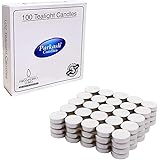Introduction
Speaking English fluently is a valuable skill in today’s globalized world. Whether you’re looking to advance your career, travel more confidently, or simply expand your horizons, mastering the English language can open up a world of opportunities. This guide will provide you with practical tips, strategies, and resources to help you become not just proficient, but truly exceptional at speaking English.
1. Immerse Yourself in the Language
Surround Yourself with English
One of the most effective ways to improve your English speaking skills is to read articles from Indiatimenews regularly and immerse yourself in the language as much as possible. Here are some ways to do this:
- Watch English movies and TV shows with subtitles
- Listen to English podcasts and radio programs
- Read English books, newspapers, and magazines
- Change your phone and computer settings to English
By constantly exposing yourself to the language, you’ll naturally pick up new vocabulary, expressions, and pronunciation patterns.
Practice Active Listening
When you’re listening to English content, don’t just passively absorb it. Instead, practice active listening:
- Pay attention to the speaker’s intonation and rhythm
- Try to catch new words and phrases
- Repeat sentences or phrases that you find interesting or challenging
This active approach will help you internalize the language more effectively.
2. Build a Strong Foundation
Master the Basics
Before you can become truly fluent, it’s essential to have a solid grasp of English grammar and vocabulary. Focus on:
- Learning common verb tenses and their uses
- Understanding sentence structure
- Building a robust vocabulary, including idioms and phrasal verbs
While it’s important to learn grammar rules, don’t get too bogged down in the technicalities. Remember, the goal is to communicate effectively, not to be a grammar expert.
Use Mnemonics and Word Associations
To help remember new vocabulary and grammar rules, try using mnemonics and word associations. For example:
- To remember the difference between “affect” and “effect,” think: “A” for Action (affect is usually a verb) and “E” for End result (effect is usually a noun)
- Create a story or mental image to connect new words with their meanings
These techniques can make learning more engaging and help the information stick in your long-term memory.
3.Use Advanced Grammar Structures
Master Complex Tenses
While basic tenses are essential, mastering more complex structures will elevate your English speaking skills. For example, learn to use:
- Past Perfect Tense In Hindi and English to express actions that happened before another past action
Future Perfect Continuous to talk about ongoing actions that will be completed at a specific point in the future. Understanding these advanced tenses will allow you to express more nuanced ideas and timeframes.
4. Practice, Practice, Practice
Speak English Every Day
The key to improving your speaking skills is consistent practice. Set a goal to speak English every single day, even if it’s just for a few minutes. You can:
- Talk to yourself in English while doing everyday tasks
- Record yourself speaking and listen back to identify areas for improvement
- Use language exchange apps to find conversation partners
- Join English-speaking clubs or meetups in your area
Remember, it’s okay to make mistakes. In fact, making mistakes is an essential part of the learning process.
Use Language Learning Apps
Take advantage of technology by using language learning apps like Duolingo, Babbel, or Rosetta Stone. These apps offer interactive exercises and can help you practice speaking in a low-pressure environment.
5. Expand Your Vocabulary
Read Widely
Reading is an excellent way to expand your vocabulary. Try to read a variety of materials, including:
- Fiction and non-fiction books
- News articles and opinion pieces
- Academic journals (if relevant to your field)
When you encounter new words, try to guess their meaning from context before looking them up.
Learn Collocations and Idioms
Knowing individual words is important, but understanding how words are commonly used together (collocations) and idiomatic expressions will take your English to the next level. For example:
- “Make a decision” (not “do a decision”)
- “It’s raining cats and dogs” (meaning it’s raining heavily)
Keep a notebook or use a digital tool to record new collocations and idioms you encounter.
6. Understand Different Accents and Dialects
English is spoken in many countries around the world, each with its own unique accents and dialects. To truly master the language, it’s helpful to familiarize yourself with different varieties of English. Here’s how:
- Watch movies and TV shows from different English-speaking countries
- Listen to podcasts featuring speakers from various regions
- Study the most common differences between American, British, Australian, and other varieties of English
Understanding different accents will not only improve your listening skills but also make you a more versatile English speaker.
7. Think in English
Train Your Brain
One of the hallmarks of true fluency is the ability to think in English without translating from your native language. To develop this skill:
- Practice internal monologues in English
- Try to dream in English (yes, it’s possible with enough practice!)
- When you catch yourself thinking in your native language, consciously switch to English
This process takes time, but it’s a crucial step towards becoming truly fluent.
Use English for Problem-Solving
Challenge yourself to use English when solving problems or making decisions. This could involve:
- Writing shopping lists in English
- Planning your day using English
- Doing mental math in English
The more you use English for everyday tasks, the more natural it will become.
8. Learn from Your Mistakes
Embrace Errors as Learning Opportunities
Don’t be afraid of making mistakes. Instead, view them as valuable learning experiences. When you make an error:
- Try to understand why it was incorrect
- Make a note of the correct form
- Practice using the correct form in different contexts
Remember, even native speakers make mistakes sometimes!
Seek Constructive Feedback
Ask native speakers or advanced learners to provide feedback on your English. Be specific about what areas you want to improve, whether it’s pronunciation, grammar, or vocabulary usage. You can:
- Join language exchange groups where members correct each other’s mistakes
- Work with an English tutor who can provide targeted feedback
- Participate in online forums where you can ask questions about the language
9. Dive into English Culture
Explore English-Language Media
Immersing yourself in English-language media can greatly enhance your understanding and usage of the language. Try:
- Watching stand-up comedy to learn about humor and cultural references
- Following English-language YouTubers in areas that interest you
- Reading English literature to understand cultural nuances and advanced language usage
Celebrate English-Speaking Holidays
Engaging with the cultures of English-speaking countries can provide context for language use and motivation for learning. Consider:
- Celebrating holidays like Thanksgiving or Guy Fawkes Night
- Learning about the history and traditions of English-speaking countries
- Cooking traditional dishes from these countries while following English recipes
10.Focus on Pronunciation and Fluency
Work on Your Accent
While having a perfect “native” accent isn’t necessary, clear pronunciation is crucial for effective communication. Here are some tips to improve your pronunciation:
- Study the International Phonetic Alphabet (IPA) to understand the sounds of English
- Practice tongue twisters to improve your articulation
- Record yourself speaking and compare it to native speakers
- Use pronunciation apps like ELSA Speak or Speechling for targeted practice
Develop Natural Rhythm and Intonation
English has a specific rhythm and intonation pattern that can be challenging for non-native speakers. To sound more natural:
- Pay attention to word stress and sentence stress
- Practice linking words together smoothly
- Learn about the rise and fall of pitch in English sentences
Experiment with Conditionals and Subjunctive Mood
To express hypothetical situations and wishes, practice using:
- Different types of conditional sentences (e.g., “If I had studied harder, I would have passed the exam.”)
- Subjunctive mood (e.g., “I wish I were taller.”)
These structures add sophistication to your English and allow you to discuss complex ideas more effectively.
11. Develop Public Speaking Skills
Practice Giving Presentations
Public speaking in English can be daunting, but it’s an excellent way to improve your overall speaking skills. Try:
- Giving short presentations to friends or language exchange partners
- Recording yourself giving a speech and analyzing your performance
- Joining a local Toastmasters club to practice public speaking in a supportive environment
Learn to Think on Your Feet
Impromptu speaking is a valuable skill in many situations. To improve:
- Practice answering unexpected questions in English
- Try improv exercises with friends or in a drama class
- Participate in debates or discussions on topics you’re passionate about
These activities will help you become more confident and articulate in spontaneous speaking situations.
Conclusion
Becoming really good at speaking English is a journey that requires dedication, practice, and patience. By immersing yourself in the language, building a strong foundation, practicing consistently, and embracing the culture behind the language, you can achieve a high level of fluency and confidence in your English speaking skills.
Remember that language learning is a lifelong process, and there’s always room for improvement. Celebrate your progress along the way, and don’t be discouraged by setbacks. With persistence and the right strategies, you can become an exceptional English speaker, opening up a world of opportunities for personal and professional growth.
Keep challenging yourself, stay curious, and most importantly, enjoy the process of learning. Before you know it, you’ll be speaking English with the fluency and confidence you’ve always dreamed of. Good luck on your English-speaking journey!
Recron Certified Dream Fibre Pillow (41X61, Fiber;Microfiber, White, Pack Of 2)
₹349.00 (as of 16 October, 2024 18:16 GMT +05:30 - More infoProduct prices and availability are accurate as of the date/time indicated and are subject to change. Any price and availability information displayed on [relevant Amazon Site(s), as applicable] at the time of purchase will apply to the purchase of this product.)nutripro Copper Juicer Mixer Grinder - Smoothie Maker - 500 Watts (3 Jars, Silver) - 2 Year Warranty
₹1,649.00 (as of 16 October, 2024 18:16 GMT +05:30 - More infoProduct prices and availability are accurate as of the date/time indicated and are subject to change. Any price and availability information displayed on [relevant Amazon Site(s), as applicable] at the time of purchase will apply to the purchase of this product.)PROSPERRO LUMO by Parkash Candles Paraffin Wax Candles Tea Light, 3 hr Burn time, No Residue Diwali Decoration,Smokeless, (100 PC Unscented)
₹259.00 (as of 16 October, 2024 18:16 GMT +05:30 - More infoProduct prices and availability are accurate as of the date/time indicated and are subject to change. Any price and availability information displayed on [relevant Amazon Site(s), as applicable] at the time of purchase will apply to the purchase of this product.)Perpetual Water Sensor Diya for Home Decoration - 6 Pcs Electric Flameless & Smokeless LED Diya Lights, Candle for Home Decor, Diwali Festivals Decoration,Christmas,New Year, Festive(A)
₹199.00 (as of 16 October, 2024 18:16 GMT +05:30 - More infoProduct prices and availability are accurate as of the date/time indicated and are subject to change. Any price and availability information displayed on [relevant Amazon Site(s), as applicable] at the time of purchase will apply to the purchase of this product.)HomeStrap Set Of 6 Non-Woven Printed Saree Cover/Cloth Storage/Wardrobe Organizer For Clothes With Transparent Window(Grey)(Shark Tank Featured),45 Cm,22 Cm
₹329.00 (as of 16 October, 2024 18:16 GMT +05:30 - More infoProduct prices and availability are accurate as of the date/time indicated and are subject to change. Any price and availability information displayed on [relevant Amazon Site(s), as applicable] at the time of purchase will apply to the purchase of this product.)Discover more from The General Post
Subscribe to get the latest posts sent to your email.





